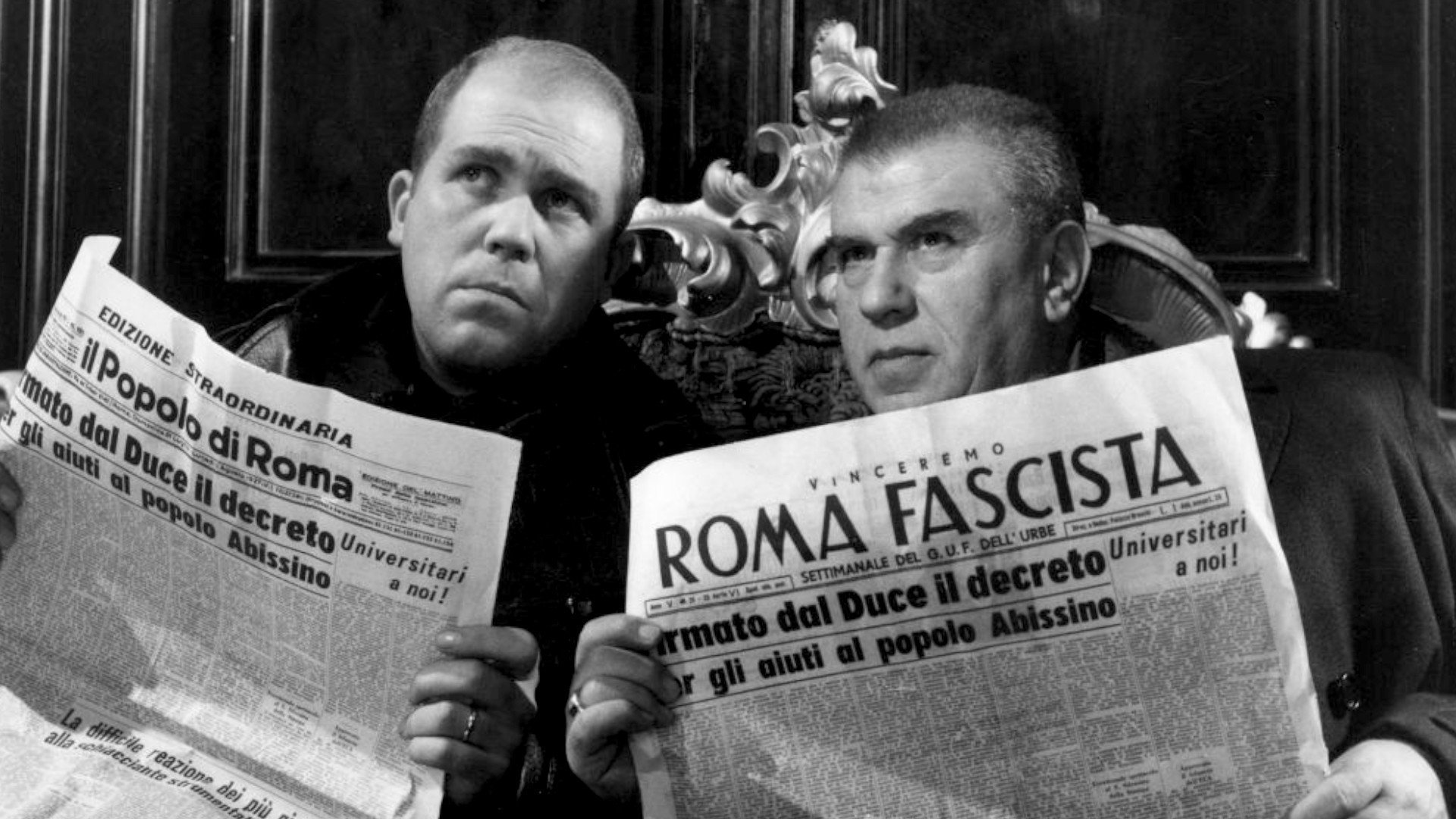Italian cinema has often served as a powerful lens through which to examine the complex history of the nation, including its tumultuous period under fascism. One such cinematic gem that delves into this era is “Gli Anni Ruggenti” (The Roaring Years), directed by Luigi Zampa. Released in 1962, the film presents a compelling narrative intertwined with the socio-political landscape of Italy during the interwar years.
Set in the 1930s, “Gli Anni Ruggenti” follows the journey of Giuseppe ‘Beppe’ Pelosi, portrayed brilliantly by Nino Manfredi, a young man from the countryside who moves to Rome in pursuit of a better life. The film expertly captures the vibrant energy of the period, depicting the bustling streets, lively cafes, and decadent parties that defined the era known as the “anni ruggenti” or “roaring years.”
At its core, “Gli Anni Ruggenti” explores the pervasive influence of fascism on Italian society during this time. Zampa portrays fascism not only as a political ideology but also as a pervasive cultural force that infiltrated every aspect of daily life. The film subtly critiques the allure of fascism, particularly among the youth, who were seduced by its promises of national pride and glory.
One of the most striking aspects of the film is its portrayal of Rome as both a playground and a prison for its inhabitants. The iconic landmarks of the city, from the majestic Colosseum to the grandiose architecture of Mussolini’s fascist regime, serve as a backdrop to the characters’ lives. These locations not only add visual richness to the film but also serve as symbols of the power dynamics at play.
Central to the narrative is the character of Beppe Pelosi, whose journey mirrors the disillusionment of many young Italians who initially embraced fascism but later came to question its ideals. Manfredi delivers a nuanced performance, capturing Beppe’s naivety and eventual awakening with remarkable depth.
Alongside Manfredi, the film features a talented ensemble cast including Giovanna Ralli as Mara, Beppe’s love interest, and Mario Adorf as Lello, his loyal friend. Their interactions provide insight into the various perspectives and experiences of Italians living under fascism, highlighting the complexities of allegiance and resistance.
Through its compelling storytelling and rich cinematography, “Gli Anni Ruggenti” offers a poignant exploration of fascism and its impact on Italian society. Zampa masterfully navigates the nuances of the period, presenting a multi-dimensional portrayal that resonates with audiences long after the credits roll. As Italy continues to grapple with its fascist past, films like “Gli Anni Ruggenti” serve as important reminders of the enduring legacy of this dark chapter in history.
Watch the whole movie on Movieitaly+
Read more article on our website!






